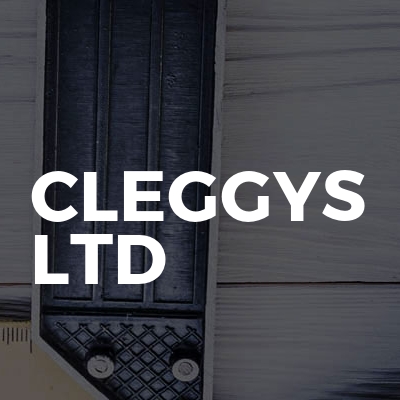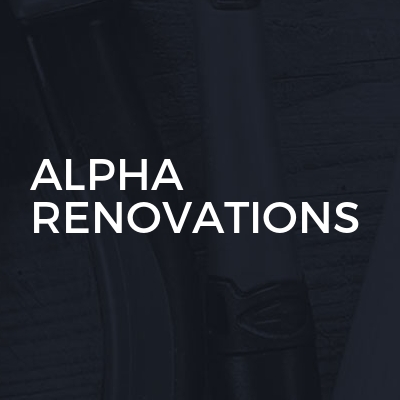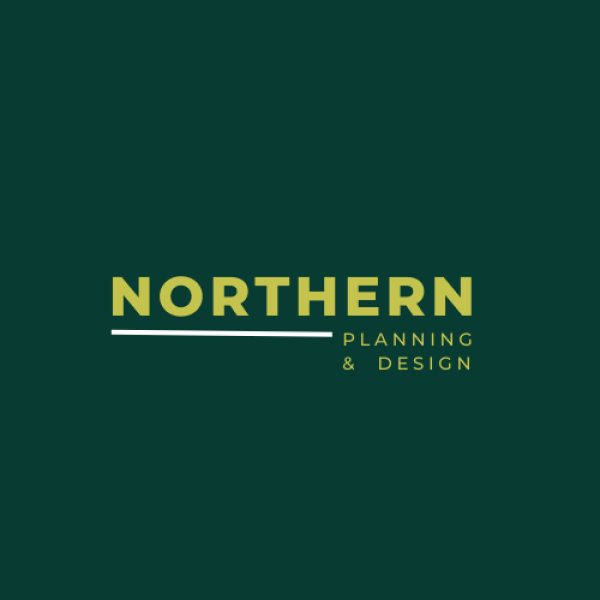Loft Conversions in Ilkley
Welcome to Evolve Interiors Limited, your go-to experts for all things construction and refurbishment in Cleckheaton and across West York... read more »
Tailored Contractors Ltd: Your Trusted Tradespeople in Featherstone, West Yorkshire
Discover the exceptional servi... read more »
Welcome to LW Roofing Building Ltd, your trusted partner for all roofing and building needs in Grove Town and across West Yorkshire. As a... read more »
Welcome to Cameo Construction Yorkshire Ltd, your premier choice for all construction needs in Ripponden and the wider West Yor... read more »
Manson Electrical Solutions Ltd is a premier choice for those seeking expert electricians and builders in Ludden... read more »
Welcome to Boardwalk Construction Ltd, your premier choice for construction services in Pellon and throughout West Yorkshire. As a distin... read more »
Welcome to Dream Projects North Limited, your trusted building company based in the heart of Halifax, West York... read more »
Awan Property Services is a reputable business based in the vibrant area of Burmantofts, offering a wide range of expert... read more »
Welcome to Highmoor Carpentry, your trusted partner for all carpentry and renovation needs in Soyland Town and across West Yorkshire. As... read more »
Welcome to MD Roofing and Building Ltd, your premier choice for builders, roofers, bathroom fitters, kitchen fitters, renovations, extens... read more »
Welcome to Sam Walton Building & Joinery, your premier choice for building and joinery services in Ripponden and throughout West Yorkshir... read more »
Welcome to J&S Building & Roofing, your premier choice for builders, extension builders, roofers, bathroom fitters, and loft conversions... read more »
Welcome to GSM Design & Development LTD, your go-to experts for all building and landscaping needs in Denholme Clough and across West Yor... read more »
Welcome to Anchor Construction Group Ltd, your trusted experts for all construction and renov... read more »
Welcome to JK Home Renovations, your premier choice for expert tradespeople services in Far Royds and across West Yorkshire. Specialising... read more »
Welcome to Everarch Construction Ltd, your premier choice for Builders, Extension Builders, Renovations, Carpenters, and Driveway Contrac... read more »
Cleggys Ltd: Your Trusted Tradespeople in Thornhill, West Yorkshire
Welcome to Cleggys Ltd, your go-to experts f... read more »
Welcome to Alpha Renovations, your trusted partner for all your building and renovation needs in Guiseley and across West Yorkshire. As a... read more »
Welcome to Northern Planning & Design, your go-to experts for all things building and design in... read more »
Welcome to S... read more »
Search Loft Conversions in places nearby
- Loft Conversions in Baildon
- Loft Conversions in Batley
- Loft Conversions in Bingley
- Loft Conversions in Bradford
- Loft Conversions in Brighouse
- Loft Conversions in Castleford
- Loft Conversions in Cleckheaton
- Loft Conversions in Dewsbury
- Loft Conversions in Elland
- Loft Conversions in Featherstone
- Loft Conversions in Garforth
- Loft Conversions in Guiseley
- Loft Conversions in Halifax
- Loft Conversions in Hebden Bridge
- Loft Conversions in Heckmondwike
- Loft Conversions in Hemsworth
- Loft Conversions in Holmfirth
- Loft Conversions in Horbury
- Loft Conversions in Horsforth
- Loft Conversions in Huddersfield
- Loft Conversions in Keighley
- Loft Conversions in Knottingley
- Loft Conversions in Leeds
- Loft Conversions in Liversedge
- Loft Conversions in Mirfield
- Loft Conversions in Morley
- Loft Conversions in Normanton
- Loft Conversions in Ossett
- Loft Conversions in Otley
- Loft Conversions in Pontefract
- Loft Conversions in Pudsey
- Loft Conversions in Queensbury
- Loft Conversions in Rothwell
- Loft Conversions in Shipley
- Loft Conversions in Silsden
- Loft Conversions in Sowerby Bridge
- Loft Conversions in Todmorden
- Loft Conversions in Wakefield
- Loft Conversions in Wetherby
- Loft Conversions in Yeadon
Understanding Loft Conversions in Ilkley
Loft conversions in Ilkley are becoming increasingly popular as homeowners seek to maximise their living space without the hassle of moving. Nestled in the picturesque Wharfedale Valley, Ilkley offers a unique blend of natural beauty and architectural charm, making it an ideal location for enhancing your home. This article will guide you through the ins and outs of loft conversions, ensuring you have all the information you need to make an informed decision.
Why Choose a Loft Conversion?
Loft conversions are a fantastic way to add value and space to your home. In Ilkley, where property prices are on the rise, converting your loft can be a cost-effective alternative to moving. Not only does it increase your home's square footage, but it also provides a versatile space that can be tailored to your needs, whether it's an extra bedroom, a home office, or a playroom for the kids.
Cost-Effectiveness
Compared to the costs associated with moving house, a loft conversion is often more economical. You avoid estate agent fees, stamp duty, and the stress of relocating. Plus, the investment in a loft conversion can significantly increase your property's value, offering a substantial return on investment.
Customisation and Personalisation
One of the greatest advantages of a loft conversion is the ability to customise the space to suit your lifestyle. Whether you need a quiet retreat, a vibrant play area, or a functional workspace, a loft conversion can be designed to meet your specific requirements.
Types of Loft Conversions
There are several types of loft conversions, each with its own benefits and considerations. Understanding these options will help you choose the best fit for your home in Ilkley.
Dormer Loft Conversion
A dormer loft conversion is one of the most common types. It involves extending the existing roof to create additional headroom and floor space. Dormers are versatile and can be added to most types of houses, making them a popular choice in Ilkley.
Mansard Loft Conversion
Mansard conversions involve altering the structure of the roof, creating a flat roof with a slight slope. This type of conversion is ideal for maximising space and is often used in terraced houses. However, it typically requires planning permission due to the extensive structural changes.
Hip to Gable Loft Conversion
This conversion is suitable for properties with a hipped roof. By extending the sloping side of the roof to create a vertical wall, you gain more usable space. Hip to gable conversions are particularly popular in semi-detached and detached homes.
Velux Loft Conversion
A Velux conversion is the least invasive option, as it doesn't require altering the roof structure. Instead, Velux windows are installed to provide natural light. This type of conversion is ideal for lofts with ample headroom and is often the most cost-effective solution.
Planning Permission and Building Regulations
Before embarking on a loft conversion in Ilkley, it's crucial to understand the planning permission and building regulations involved. While some conversions fall under permitted development rights, others may require formal approval.
Permitted Development
Many loft conversions can be completed under permitted development rights, meaning you won't need planning permission. However, there are specific criteria that must be met, such as not exceeding a certain volume or altering the roof's shape.
When Planning Permission is Required
If your conversion involves significant structural changes, such as a mansard or hip to gable conversion, you may need planning permission. It's essential to consult with your local planning authority to ensure compliance with all regulations.
Building Regulations
Regardless of whether planning permission is needed, all loft conversions must comply with building regulations. These regulations ensure the safety and structural integrity of the conversion, covering aspects such as fire safety, insulation, and access.
Choosing the Right Contractor
Selecting a reputable contractor is crucial to the success of your loft conversion. In Ilkley, there are numerous experienced professionals who can guide you through the process from start to finish.
Research and Recommendations
Start by researching local contractors and seeking recommendations from friends or family who have undertaken similar projects. Online reviews and testimonials can also provide valuable insights into a contractor's reliability and quality of work.
Obtaining Quotes
Once you've shortlisted potential contractors, obtain detailed quotes from each. Ensure the quotes include all aspects of the project, from design and planning to construction and finishing touches. This will help you compare costs and make an informed decision.
Checking Credentials
Verify the credentials of your chosen contractor, ensuring they are registered with relevant trade bodies and have the necessary insurance coverage. This will provide peace of mind and protect you from potential issues during the project.
Designing Your Loft Space
The design phase is an exciting part of the loft conversion process, allowing you to create a space that reflects your personal style and meets your needs.
Maximising Natural Light
Incorporating natural light is key to creating a welcoming and functional loft space. Consider installing large windows or skylights to flood the area with light, making it feel more spacious and inviting.
Optimising Layout
Careful planning of the layout is essential to make the most of your loft conversion. Consider the placement of furniture, storage solutions, and access points to ensure the space is practical and comfortable.
Choosing Finishes and Fixtures
Selecting the right finishes and fixtures can enhance the overall aesthetic of your loft conversion. From flooring and wall colours to lighting and furnishings, every detail contributes to the final look and feel of the space.
Budgeting for Your Loft Conversion
Setting a realistic budget is crucial to the success of your loft conversion project. Understanding the costs involved will help you plan effectively and avoid unexpected expenses.
Initial Costs
The initial costs of a loft conversion include design fees, planning applications, and structural assessments. These expenses are essential to ensure the project is feasible and compliant with regulations.
Construction Costs
Construction costs will vary depending on the type of conversion and the complexity of the project. It's important to factor in costs for materials, labour, and any unforeseen issues that may arise during construction.
Finishing Touches
Don't forget to budget for the finishing touches, such as decorating, furnishing, and any additional features you wish to include. These elements can significantly impact the overall cost of the project.
Common Challenges and Solutions
While loft conversions offer numerous benefits, they can also present challenges. Being aware of potential issues and their solutions will help you navigate the process smoothly.
Limited Headroom
One common challenge is limited headroom, which can restrict the usability of the space. Solutions include lowering the ceiling of the room below or opting for a dormer conversion to increase height.
Access and Staircase Design
Designing a suitable staircase is crucial for safe and convenient access to your loft conversion. Consider space-saving options such as spiral staircases or alternating tread stairs to maximise space.
Insulation and Ventilation
Proper insulation and ventilation are essential for maintaining a comfortable environment in your loft conversion. Ensure your contractor uses high-quality materials and installs adequate ventilation systems to prevent issues such as dampness and heat loss.
Environmental Considerations
Incorporating eco-friendly features into your loft conversion can enhance its sustainability and reduce your carbon footprint.
Energy-Efficient Windows
Installing energy-efficient windows can help regulate temperature and reduce energy consumption. Look for windows with high thermal performance ratings to maximise efficiency.
Sustainable Materials
Consider using sustainable materials for your loft conversion, such as reclaimed wood or eco-friendly insulation. These materials not only benefit the environment but can also add unique character to your space.
Renewable Energy Solutions
Incorporating renewable energy solutions, such as solar panels or heat pumps, can further enhance the sustainability of your loft conversion. These systems can reduce your reliance on traditional energy sources and lower your utility bills.
Frequently Asked Questions
What is the average cost of a loft conversion in Ilkley?
The cost of a loft conversion in Ilkley can vary depending on the type and complexity of the project. On average, you can expect to pay between £20,000 and £50,000.
How long does a loft conversion take to complete?
The duration of a loft conversion depends on the size and complexity of the project. Typically, it can take anywhere from 6 to 12 weeks to complete.
Do I need planning permission for a loft conversion in Ilkley?
Not all loft conversions require planning permission, as many fall under permitted development rights. However, it's essential to check with your local planning authority to ensure compliance.
Can I convert my loft if I have a low roof?
Yes, even if you have a low roof, there are solutions available, such as lowering the ceiling of the room below or opting for a dormer conversion to increase headroom.
Will a loft conversion add value to my home?
Yes, a well-executed loft conversion can significantly increase the value of your home, often providing a return on investment that exceeds the initial cost.
What are the building regulations for loft conversions?
Building regulations for loft conversions cover aspects such as fire safety, insulation, and access. It's essential to ensure your conversion complies with these regulations to guarantee safety and structural integrity.
Final Thoughts on Loft Conversions in Ilkley
Loft conversions in Ilkley offer a fantastic opportunity to enhance your living space and add value to your home. By understanding the different types of conversions, planning permission requirements, and potential challenges, you can embark on your project with confidence. With careful planning, a reputable contractor, and a clear vision for your space, your loft conversion can become a valuable and cherished part of your home.
Send a message
























